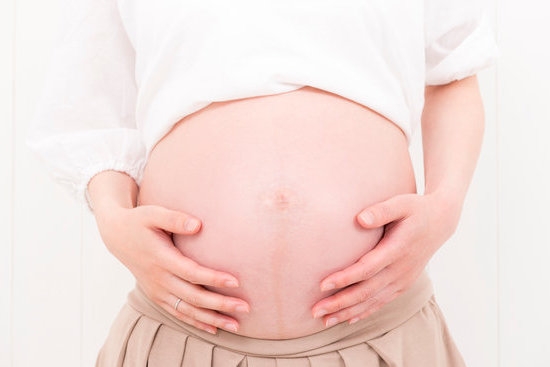Pregnancy spotting can be an unsettling experience for expectant mothers, leading them to wonder “how long does pregnancy spotting last?” Spotting during pregnancy is a common concern and can occur at different stages. Understanding the nature of pregnancy spotting and its duration is crucial for expectant mothers to alleviate any anxieties or concerns.
Spotting during pregnancy refers to light bleeding that occurs outside of the regular menstrual cycle. It can range from a few drops of blood, spots on underwear, or even light bleeding. This can happen at various times during pregnancy, including early on in the first trimester and sometimes later on as well. It’s important for pregnant individuals to be aware of this possibility and understand what it means when it comes to timing.
In this article, we will delve into the causes of pregnancy spotting and explore the potential reasons behind this occurrence. We will also discuss the different types of pregnancy spotting, from normal to abnormal, and provide information on how to differentiate between them. Additionally, we will address the main focus of this article: how long does pregnancy spotting last? By examining the duration of spotting during pregnancy, we aim to provide expectant mothers with comprehensive insight into this common phenomenon.
Causes of Pregnancy Spotting
Pregnancy spotting can be a source of concern for many expecting mothers, leading them to wonder how long it will last and what may be causing it. Spotting during pregnancy is typically defined as light vaginal bleeding that occurs outside of the regular menstrual cycle. It is a common occurrence among pregnant women, with around 20% to 30% experiencing some degree of spotting during the first trimester.
There are several potential causes of pregnancy spotting, ranging from harmless to more serious issues. One common cause is implantation bleeding, which occurs when the fertilized egg attaches itself to the lining of the uterus. This usually happens around the time of an expected period and is often lighter in flow than a typical menstrual period. Cervical changes, such as irritation from intercourse or a pelvic exam, can also lead to light bleeding in early pregnancy.
In some cases, however, pregnancy spotting can indicate a more serious concern. Miscarriage or ectopic pregnancy are potential causes of heavier or prolonged spotting during pregnancy and require immediate medical attention.
Other possible causes include infections, hormonal imbalances, or certain medical conditions such as polyps or fibroids in the uterus. With such a wide range of potential reasons behind pregnancy spotting, it’s important for expectant mothers to consult with their healthcare provider to determine the cause and receive appropriate care.
| Potential Causes | Description |
|---|---|
| Implantation Bleeding | Light bleeding related to the fertilized egg attaching to the uterine lining |
| Cervical Changes | Irritation from intercourse or pelvic exam leading to light bleeding |
| Miscarriage/Ectopic Pregnancy | Heavier or prolonged spotting indicating a serious concern requiring medical attention |
Types of Pregnancy Spotting
Pregnancy spotting can be a cause of concern for many expectant mothers, but it is important to understand that not all spotting during pregnancy is abnormal. In fact, some spotting can be considered normal and may not indicate any serious complications. It is crucial to differentiate between normal and abnormal spotting in order to determine when medical attention is necessary.
Normal spotting during pregnancy can occur for a variety of reasons, including implantation bleeding, cervical changes, or irritation from sexual intercourse. This type of spotting is usually light in flow and may be pink or brown in color. It is typically short-lived and does not require medical intervention.
On the other hand, abnormal spotting during pregnancy may be a sign of more serious issues such as miscarriage or ectopic pregnancy. Abnormal spotting often involves heavier bleeding, bright red blood, or severe cramping. It is important to seek medical attention immediately if you experience these symptoms.
To differentiate between normal and abnormal spotting during pregnancy, here are some key factors to consider:
- Flow: Normal spotting is usually light and may only require a panty liner, while abnormal spotting may be heavier and require a sanitary pad.
- Color: Normal spotting is commonly pink or brown in color, while abnormal spotting may appear as bright red blood.
- Duration: Normal spotting typically lasts for a short period of time (a few hours to a couple of days), while abnormal spotting may persist for longer periods.
Understanding the differences between normal and abnormal pregnancy spotting can help expectant mothers determine when it is necessary to seek medical attention. If you are unsure about the type of spotting you are experiencing or how long does pregnancy spotting last, it is always best to consult with your healthcare provider for further guidance.
How Long Does Pregnancy Spotting Last
Pregnancy spotting, also known as implantation bleeding, can occur when a fertilized egg attaches itself to the uterine lining. This typically happens around the time of the expected menstrual period or a little later. It is estimated that one-third of pregnant women will experience some form of pregnancy spotting during their first trimester.
There are different factors that can impact how long pregnancy spotting lasts, including the amount of blood involved, whether it is accompanied by cramping, and the underlying cause. On average, pregnancy spotting can last anywhere from a few hours to a few days. However, in some cases, it may persist for several weeks.
Here are some common durations for pregnancy spotting:
- Light spotting: This can last for 1-2 days and is often lighter in flow compared to a regular period.
- Moderate spotting: Lasting up to 3-5 days, this type of spotting may be accompanied by mild cramping.
- Prolonged spotting: In some instances, pregnancy spotting can continue for weeks, though it may only appear as light discharge or occasional streaks of blood.
It’s important to note that every woman’s experience with pregnancy spotting is unique and can vary based on individual circumstances. If you have any concerns about how long your pregnancy spotting is lasting or if you have other symptoms that worry you, it’s crucial to seek guidance from your healthcare provider.
When to Seek Medical Attention
Pregnancy is a time of great joy and anticipation, but it can also bring about worries and concerns, especially for first-time mothers. One common concern that many pregnant women face is spotting.
It can be alarming to see any amount of blood during pregnancy, but it’s important to understand that spotting can be normal in some cases. However, knowing when spotting during pregnancy requires medical intervention is crucial for the health and safety of both the mother and the baby.
Spotting during pregnancy can occur for a variety of reasons, including implantation bleeding, hormonal changes, or cervical irritation. In most cases, light spotting is considered normal and does not necessarily indicate a serious problem. However, if the spotting is accompanied by severe pain, cramping, or heavy bleeding, it may be a sign of a more serious issue such as an ectopic pregnancy or miscarriage.
It’s essential for pregnant women to pay attention to their bodies and understand when spotting warrants medical attention. If you experience any abnormal vaginal bleeding during pregnancy, it’s best to consult with your healthcare provider immediately. Prompt medical intervention can help ensure the well-being of both the mother and the developing baby.
| Reasons for Pregnancy Spotting | When to Seek Medical Attention |
|---|---|
| Implantation bleeding | If accompanied by severe pain or cramping |
| Hormonal changes | If there is heavy bleeding |
| Cervical irritation | If spotting continues for an extended period of time |
Tips for Managing Pregnancy Spotting
Pregnancy spotting can be a cause of concern for many expectant mothers, but it’s important to remember that it is not uncommon. While it can be unsettling, there are some practical tips for managing pregnancy spotting that can help ease your worries and discomfort.
Stay Calm and Monitor the Situation
One of the most important things to do when experiencing pregnancy spotting is to try to stay calm. It’s natural to feel anxious, but panicking will only worsen the situation. Take a deep breath and monitor the spotting. Keeping track of when it occurs, how heavy it is, and any accompanying symptoms will provide valuable information when discussing the issue with your healthcare provider.
Rest and Hydration
During this time, taking care of yourself is crucial. Make sure to get plenty of rest and stay hydrated. Stress can exacerbate spotting, so getting enough rest and drinking plenty of water can help alleviate any unnecessary strain on your body.
Follow Your Doctor’s Advice
Seeking medical advice is essential if you experience pregnancy spotting. Your healthcare provider will be able to give you personalized recommendations based on your specific situation. Follow their advice closely, whether it’s taking medication, modifying your activities, or scheduling additional appointments for monitoring.
By implementing these practical tips for managing pregnancy spotting, you can alleviate some of the stress and discomfort associated with this common occurrence during pregnancy. Remember to reach out to your healthcare provider if you have any concerns about how long does pregnancy spotting last or if you feel uneasy about the situation.
Real Stories
During my second trimester, I experienced pregnancy spotting that lasted for about two weeks. It was a very stressful and overwhelming time for me, as I was constantly worried about the health of my baby. I reached out to my healthcare provider immediately and was advised to take it easy and monitor the spotting closely.
Fortunately, after two weeks, the spotting gradually stopped on its own. However, it was a challenging experience that made me realize the importance of seeking prompt medical attention and staying positive during such situations.
II. A Supportive Partner’s Perspective.
My wife experienced pregnancy spotting in her first trimester, and we were both incredibly concerned about what it could mean for our baby. We sought medical advice right away, and fortunately, we were reassured that the spotting was due to some common hormonal changes during early pregnancy. The medical professionals informed us that it is not uncommon for women to experience occasional spotting throughout their first trimester.
In my wife’s case, the spotting lasted for about 10 days before gradually fading away. We realized how crucial it is to communicate openly with each other during such times and provide unwavering support.
III. Managing Anxiety: A First-Time Mother Shares Her Story.
they explained that while light spotting can occur at various stages of pregnancy, if it persists for more than a day or becomes heavy, immediate medical attention is necessary. In my case, with proper rest and close monitoring by my healthcare provider, the spotting ceased after about five days.
These personal accounts illustrate the various experiences women may have with pregnancy spotting and highlight that while each situation is unique, seeking timely medical guidance is crucial in addressing any concerns related to its duration or potential implications on pregnancy.
Conclusion
In conclusion, pregnancy spotting can be a source of concern for expectant mothers, but it is important to understand that it is not uncommon and often has harmless causes. As discussed in this article, pregnancy spotting can occur at various times during pregnancy and may be attributed to factors such as implantation bleeding, hormonal changes, or cervical irritation. Understanding the potential causes and distinguishing between normal and abnormal spotting can help alleviate anxiety for many women.
One of the most common questions expectant mothers have when experiencing pregnancy spotting is “how long does pregnancy spotting last?” While there is no definitive answer, it is generally considered normal for some women to experience light spotting for a few hours or up to several days. However, persistent or heavy bleeding should always be evaluated by a healthcare professional.
It’s essential for pregnant individuals to be aware of when to seek medical attention for spotting during pregnancy. If there are any concerns about the duration or nature of the bleeding, seeking immediate advice from a healthcare provider is crucial. Overall, maintaining open communication with a healthcare team and adhering to their recommendations can ensure a safe and healthy pregnancy journey.
Frequently Asked Questions
How Long Should Spotting Last in Early Pregnancy?
Spotting in early pregnancy can last for a few hours to a few days. It is typically lighter than a regular period and may be pink or brown in color. However, if the bleeding becomes heavy or severe, it’s important to seek medical attention.
What Do Pregnancy Spotting Look Like?
Pregnancy spotting can vary in appearance, but it often presents as light pink or brown vaginal discharge. It may be intermittent and usually doesn’t require a sanitary pad. However, if the spotting is accompanied by severe pain or heavy bleeding, it’s crucial to consult with a healthcare provider.
How Long Will I Get Spotting if I Get Pregnant?
Spotting during early pregnancy can last anywhere from a few hours to a few days. Some women may experience spotting on and off throughout their first trimester due to hormonal changes and implantation of the embryo into the uterine lining. However, if the spotting persists or worsens, it’s essential to seek guidance from an obstetrician or gynecologist.

Welcome to my fertility blog. This is a space where I will be sharing my experiences as I navigate through the world of fertility treatments, as well as provide information and resources about fertility and pregnancy.





